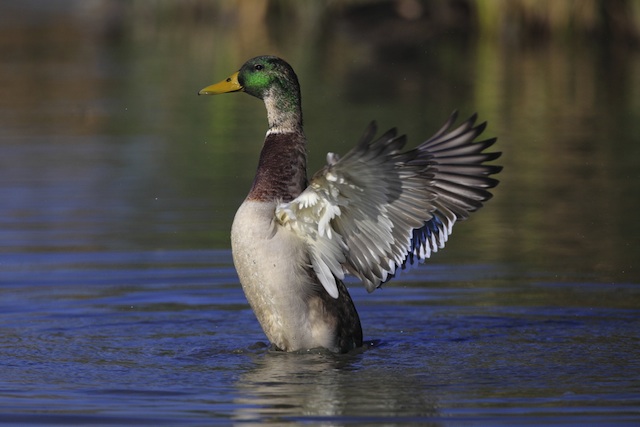Did you know that ducks have spiral penises? You would, if like most people who access PLOS – the Public Library Of Science – you chose to read their second most popular article, one describing the corkscrew shape of male ducks’ genitals. Or, you could read their most popular article, the one detailing the fact that bats engage in oral sex.
The fact that these articles, not ones more relevant to most of our lives, even if they have less sexy topics, are the most read is the subject of Alice Robb’s recent article in The New Republic, “The Duck Penis Paradox.” She bemoans the fact that the popularization of science has overly high costs and suggests that without tighter standards for publishing – without maintaining more of what she calls a meritocracy – science publishing will lose its merit.
I have a real measure of sympathy for the serious concerns and frustrations raised in Robb’s article. One would be crazy not to. After all, it’s no secret that the digital age and the massive democratization of information that it has brought in its wake has real costs.
We live in an era of information overload and wisdom famine. That’s no secret. Bemoaning abundance, however, strikes me as the wrong way to go. So too, does blaming the purveyors of that abundance, especially when those who bemoan the cost of popularization participate in the process that they claim degrades the culture about which they are concerned.
Ultimately, the real take away here, is the extent to which all of us participate in the very trends about which we often complain.
Why else did Robb and/or her editors name the article as they did? They know that just putting the words “duck penis” in the title would draw attention and successfully link the article to the very one bemoaned in theirs. And yes, I am doing the exact same thing!
It’s not that Robb is totally wrong, but among the many tools needed in order to successfully navigate our era of information overload is a healthy dose of self-awareness and an equally developed sense of irony – neither of which make an appearance in her piece. So yeah, go ahead and complain about PLOS and the popularization of work about duck genital and bat fellatio, but not without laughing at yourself as you do so. Lord knows I did when I wrote this post!
Ultimately, the real takeaway here is the extent to which all of us participate in the very trends about which we often complain. Think about how much time and energy we spend defining ourselves, our values, and our lives by what we are not and who we oppose, as opposed to who we are and what we embrace. It may not be as sexy, but it may be a whole lot more healthy.

Listed for many years in Newsweek as one of America’s “50 Most Influential Rabbis” and recognized as one of our nation’s leading “Preachers and Teachers,” by Beliefnet.com, Rabbi Brad Hirschfield serves as the President of Clal–The National Jewish Center for Learning and Leadership, a training institute, think tank, and resource center nurturing religious and intellectual pluralism within the Jewish community, and the wider world, preparing people to meet the biggest challenges we face in our increasingly polarized world.
An ordained Orthodox rabbi who studied for his PhD and taught at The Jewish Theological Seminary, he has also taught the University of Pennsylvania, where he directs an ongoing seminar, and American Jewish University. Rabbi Brad regularly teaches and consults for the US Army and United States Department of Defense, religious organizations — Jewish and Christian — including United Seminary (Methodist), Yeshivat Chovevei Torah (Modern Orthodox) Luther Seminary (Lutheran), and The Jewish Theological Seminary (Conservative) — civic organizations including No Labels, Odyssey Impact, and The Aspen Institute, numerous Jewish Federations, and a variety of communal and family foundations.
Hirschfield is the author and editor of numerous books, including You Don’t Have To Be Wrong For Me To Be Right: Finding Faith Without Fanaticism, writes a column for Religion News Service, and appears regularly on TV and radio in outlets ranging from The Washington Post to Fox News Channel. He is also the founder of the Stand and See Fellowship, which brings hundreds of Christian religious leaders to Israel, preparing them to address the increasing polarization around Middle East issues — and really all currently polarizing issues at home and abroad — with six words, “It’s more complicated than we know.”

